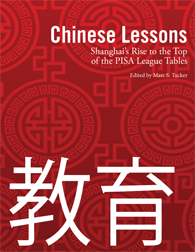In 1978, when Deng Xiao Ping took the helm in China, the schools there were in disastrous shape. Mao had closed them years earlier, during the Cultural Revolution, and sent the teachers out to the countryside to perform manual labor, to do penance for their bourgeois values. But, when the 2009 PISA results came out, Shanghai was at the top of the global education league tables. And, when the results for 2012 were released in December 2013, Shanghai still topped the charts, but its average performance had improved by more than four percentage points from the previous survey. How could this have happened?
To answer that question, NCEE Founding President Marc Tucker spoke with five experts including top Chinese education leaders and international researchers:
- Kai-ming Cheng, Chair Professor of Education at Hong Kong University where he previously served as Senior Advisor to the Vice-Chancellor
- Tom Corcoran, co-director of the Consortium for Policy Research in Education at Teachers College, Columbia University
- Ben Jensen, a highly regarded analyst in the OECD Education Directorate who currently leads the education work of the Grattan Institute in Melbourne
- Vivien Stewart, Senior Advisor to the Asia Society for Education, where she was, until recently, the Vice President for Education
According to Tucker, “What is striking about these interviews is the way they complement each other. Each of the interviewees sees Shanghai through a different lens. One gets a complete picture only by combining these different views.” Read the full report here.





